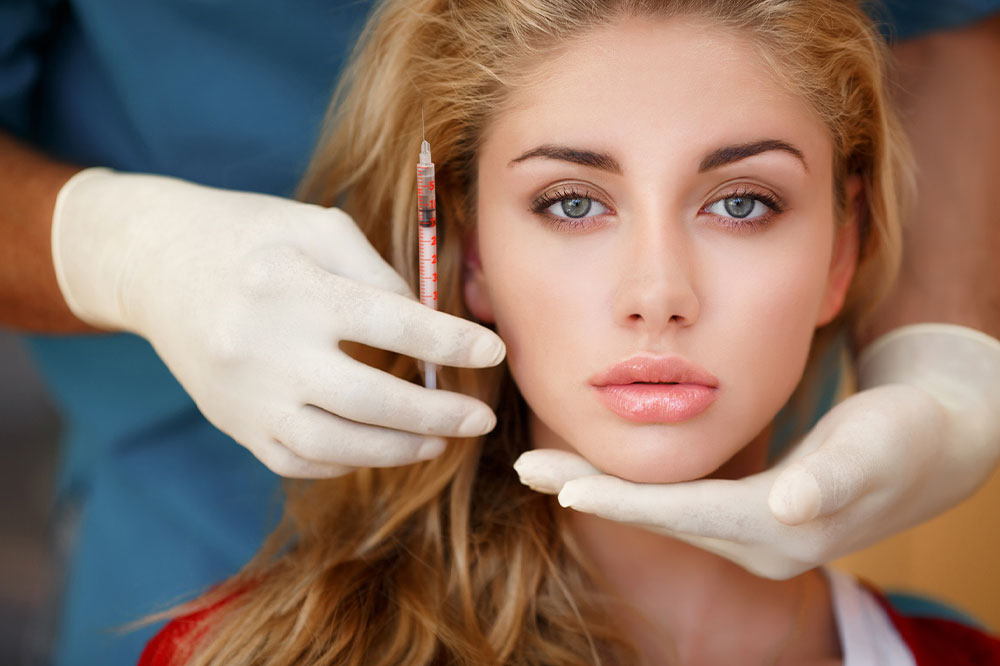A Brief Overview of Botox
An injectable muscle relaxant for wrinkles is called Botox cosmetic. It uses OnabotulinumtoxinA to temporarily paralyze the muscle to reduce the look of facial wrinkles. Little to no discomfort results from a Botox procedure. It is a secure, successful method of treating wrinkles and fine lines around the eyes. It can be applied to the area above the eyes on the forehead. Let’s discuss a few key points to know about the treatment.

Is Botox treatment safe?
This treatment can be considered the best when it comes to reducing the appearance of wrinkles due to aging or other reasons.
The FDA initially approved Botox in 1989 to treat blepharospasm and other issues with the eye muscles. The FDA authorized the use of Botox as a cosmetic procedure in 2002 for the treatment of moderate to severe frown lines between the brows. In 2013, the FDA approved it for the treatment of crow’s feet or wrinkles around the eyes.
Do you need any preparation before the Botox treatment?
Botox cosmetic treatment is a non-invasive, in-office procedure. There is hardly much preparation needed in order to undergo the process. Before your procedure, you should discuss your medical history, allergies, and current medical issues with your treatment provider. A registered nurse, a qualified doctor, or a physician assistant should be in charge of your care. Before the process, you might need to wash and clean the treatment area and take off all of your makeup. You may also need to avoid blood-thinning treatment to lower the chance of bruising.
What does Botox treatment do to the wrinkled area?
Botox is the most common non-surgical cosmetic procedure to help with wrinkles. The muscle-related nerve activity is blocked by botulinum toxin or Botox. Botox temporarily paralyzes underlying muscles, which makes it helpful in treating some muscular problems as well as for treating wrinkles and fine lines. The usage of Botox cosmetics temporarily reduces the visibility of facial wrinkles.
Botox treatment (FDA approved) also helps with:
Cervical dystonia is treated with a Botox injection (severe spasms in the neck muscles). It is also used to treat muscle spasms (stiffness) in the lower or upper limbs, including the elbows, wrists, and fingers (ankles, toes).
Additionally, many eye muscle issues brought on by nerve disorders are treated with Botox injections.
Adults with chronic migraine headaches who experience them more than 15 days a month and for at least four hours each can benefit from receiving a Botox injection. Common tension headaches shouldn’t be treated with this.
How long does Botox last?
The main goal of Botox is to prevent the natural aging process by blocking the nerves—the type of skin, age, and wrinkles after Botox’s length. The Botox will typically last for 3 to 4 months. In other situations, the time frame may be less than two months or greater than six months.
Who is not eligible for Botox treatment?
Pregnant or nursing women can have an adverse reaction to the treatment or any of its components and shouldn’t use botulinum toxin, even more so if they have had an adverse reaction to the treatment. Not every migraine patient is eligible for the treatment. You are unlikely to be recommended for Botox treatments if you respond well to other migraine treatments.
What is the cost of Botox treatment?
In 2016, a botulinum toxin treatment like Botox cosmetic had an average cost of $376. The price of your therapy may vary based on the number of injections, the size of the treatment area, and the location where you receive it. Cosmetic Botox injections are a choice and will not be covered under health insurance policies.
Botox treatment procedures
Even when used for cosmetic reasons, a qualified medical specialist should only administer Botox injections.
A medical professional administers this by injecting it into a muscle. At least three months should pass between each Botox injection.
Depending on the problem being treated, multiple areas may receive Botox injections at once.
You might need to use eye drops, ointment, a special contact lens, or another technique to protect the surface of your eye while getting injections for eye muscle conditions. Pay attention to your doctor’s advice.
Risk factors involved
Minor bruising or discomfort could happen, but it should go away after a few days. Other negative effects include:
Swelling or drooping in the eyelid area
Tiredness
Headache
Neck pain
Double vision
Dry eyes
Allergic reactions ( rash, itching, asthma symptoms)
Make sure the practitioner you choose for the treatment is authorized to deliver Botox treatment. Botox therapy can be dangerous if administered incorrectly. Any allergies or health issues should be disclosed to your doctor, and you should contact them immediately if you encounter any negative effects after receiving treatment. The effects last four months, and then you retake the injections to keep your wrinkles from worsening.



